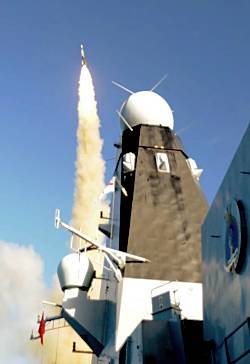WASHINGTON — A clear understanding of the Afghan people’s needs and attainable milestones for progress are necessary for U.S. funds to be used wisely, the special U.S. inspector general for Afghanistan reconstruction told Congress yesterday.
U.S. agencies involved in the effort “lack a full picture of reconstruction projects in Afghanistan,” Arnold Fields told the House Foreign Affairs subcommittee on international organizations, human rights and oversight. He added that the issue “must be addressed to improve the implementation of what is poised to be the largest overseas reconstruction effort in American history.”
Since 2002, the United States has invested more than $50 billion into the war-torn country. A budget request submitted to lawmakers by President Barack Obama in February would add $20 billion to Afghanistan reconstruction funding. But before the money is appropriated, Fields said, he intends to ensure it will be used responsibly and that the Afghan government will be held accountable for the American dollars it uses.
Fields’ undertaking was established in 2008 to help in preventing wasteful spending in Afghanistan. His office reports its findings to the White House, the State Department and the Pentagon, and it also offers recommendations to make spending and using federal funds for contracting transparent.
The special inspector general is auditing projects and programs dating back to the start of reconstruction in Afghanistan. In the past 12 months, Fields’ office has produced numerous reports, which identify issues dating back to 2002, he said.
“We are, by way of the forensic effort, going back and determining the extent to which funds were wasted during the period in advance of this office having been stood up,” he said. “Our work has identified several issues that hamper the reconstruction effort in Afghanistan. I am particularly concerned about … inadequate planning, inadequate sustainability and inadequate accountability.”
Fields cited a lack of quality control for infrastructure projects and agencies’ shortages of qualified contracting officials as examples of his delegation’s research. Audits have discovered “obsolete planning” documents regarding energy and security, he said.
He also noted that military officials are unable to provide the inspector general’s office with updated plans for Afghan security forces’ facilities and training, despite the more than $25 billion that’s already been appropriated to train and equip Afghan security forces.
Noting that American taxpayers deserve to have their dollars spent responsibly, the inspector general said his office has conducted capability milestone audits to monitor development progress of fielded Afghan units.
“As part of the planning process, implementing agencies must establish reliable metrics to measure progress,” said Fields, a retired Marine Corps major general. “The ability to accurately measure the abilities of the Afghan army and police is absolutely critical to the U.S. strategy in Afghanistan.
“Our audit will — which is yet to be released — will describe weaknesses that have affected the reliability of the ratings system,” he continued. “And certainly, we will make recommendations.”
This audit already has made an impact on how U.S. and NATO forces, as well as the Defense Department, measure Afghan forces’ effectiveness, he added. The department’s acknowledgement of the system’s limitations has caused U.S. forces to employ a unit-level system, as opposed to measuring effectiveness regionally, he said.
Another finding in the past year has determined that the Afghan government can’t afford to operate and maintain infrastructure. This means that while the United States has contracts already funded for the next few years to preserve such infrastructure, it’s only a short-term solution, Fields explained.
And although the international community is committed to developing Afghanistan’s army and police, the question that must be asked is how those forces will be sustained over time, he said.
“[The inspector general] certainly supports giving Afghans a greater say in how money is spent,” Fields said, “but we also believe it is vital that Afghans be held accountable for U.S. funds channeled through the Afghan institutions.”
Fields’ team already has begun assessing what the United States and the international community are doing to build Afghan institutions to deter corruption and strengthen rule of law, he said, targeting systems currently in place to see how Afghans exert control and demonstrate accountability.
Fields said his team also is reviewing the civilian portion of the interagency surge in Afghanistan, noting that this audit will seek to measure the effectiveness of personnel and whether or not they’re being “effectively utilized to achieve strategic goals.”
Ultimately, he said, the Afghan government must do its part to be responsible and accountable to ensure that international-provided funds are not wasted.
“We are … prepared to provide the expanded oversight necessary to detect and deter waste, fraud and abuse of the increasing U.S. funding for this reconstruction effort,” Fields said. “The success of this strategy depends not only on how the U.S. implements its reconstruction program; it also depends on the actions of the Afghan government.”
Source:
U.S. Department of Defense
Office of the Assistant Secretary of Defense (Public Affairs)

 von
von 
